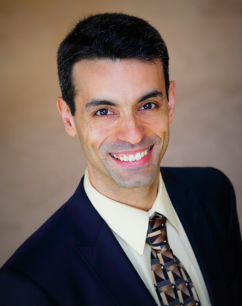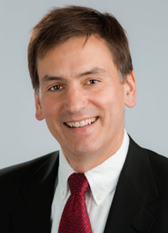IEEE Robotics and Automation - Maps and Localization for Automated Driving
IEEE RAS is pleased to host an assistant research scientist from University of Michigan in Robotics and a researcher from Continental Automotive.
Maps and Localization for Automated Driving.
Date and Time
Location
Hosts
Registration
-
 Add Event to Calendar
Add Event to Calendar
- Lawrence Technological University
- 21000 West 10 Mile Road, Southfield, MI USA 48075
- Southfield, Michigan
- United States 48075
- Building: Building 4 - Alfred Taubman Engineering Complex
- Room Number: Room J234
- Click here for Map
Speakers
 Tulga Ersal of University of Michigan
Tulga Ersal of University of Michigan
Pushing autonomous vehicles to their dynamic limits during obstacle avoidance
Motivated by the need for maximizing mobility performance of autonomous vehicles in time-critical applications such as military operations or active safety, we will discuss a model predictive control based obstacle avoidance algorithm for autonomous ground vehicles in unstructured environments without a priori knowledge about the obstacles. We will consider a scenario where obstacles are detected using a LIDAR sensor on-board the vehicle and an optimal control problem is formulated to optimize the speed and steering commands within the detection range. In this framework, acceleration capability of the vehicle and stability and handling concerns such as tire lift-off are taken into account as constraints in the optimization problem, whereas the cost function is formulated to navigate the vehicle as quickly as possible towards a given target location with smooth control commands. Thus, a safe and fast navigation is enabled that can exploit the dynamic limits of the vehicle. Simulation results will be given to illustrate the performance of the algorithm and on-going experimental efforts will be highlighted.
Biography:
Tulga Ersal received the B.S.E. degree from the Istanbul Technical University, Istanbul, Turkey, in 2001, and the M.S. and Ph.D. degrees from the University of Michigan, Ann Arbor, MI USA, in 2003 and 2007, respectively, all in mechanical engineering. He is currently an Assistant Research Scientist in the Department of Mechanical Engineering at the University of Michigan, Ann Arbor, MI USA.
Dr. Ersal's research is in the field of system dynamics and control. He is interested in mathematical modeling and advanced identification and control techniques with applications to energy systems (e.g., batteries, fuel cells, vehicle powertrains, microgrids), vehicle systems (e.g., autonomous vehicles, powertrain management, driver distraction), and biomechanics (e.g. human balance).
 Matthew Berkemeier of Continental Automotive
Matthew Berkemeier of Continental Automotive
Maps and Localization for Automated Driving
Digital maps are often said to be critical to the success of Highly Automated Driving. In this talk I will discuss maps, sensors, and localization algorithms and how they can be used for self-driving cars. The differences between High Definition and ADAS maps will be discussed, as will the use of automotive-grade sensors and their more sophisticated research-grade equivalents. Localization methods including Monte Carlo and Extended Kalman Filter approaches will be described. Some efforts by various automated driving teams will also be discussed.
Biography:
Matthew Berkemeier is an Algorithm Development Engineer currently working on Localization and Automated Driving at Continental Automotive Systems. Prior to this, he worked for 9 years at Autonomous Solutions in Utah, where the focus was on automating mining vehicles, agricultural vehicles, and military land targets. While there, he participated in the 2007 DARPA Urban Challenge. He has also taught at Utah State University and Boston University. He received his Ph.D. and M.S. from the University of California at Berkeley and his B.S. from Purdue University.
Maps and Localization for Automated Driving.
Biography:
Address:United States
Agenda
10:30AM - Brief Introduction and welcome - Food available on the table
10:30AM to 11:30AM Presentation 1 – Tulga Ersal
11:30AM to 12:30PM Presentation 2 – Matthew Berkemeier
12:30PM to 1:00PM Networking & refreshments
1:00PM Adjourn

